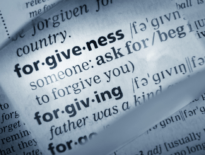
#NotAll Commentary: Unpacking Tangential Responses
This week on the AS FB page I’ve been accused of attacking a wide variety of groups as per usual, simply by posting memes that critique unhealthy systems and behaviors. This happens fairly regularly here at the Assertive Spirituality page, mind you—but this week was special as I can’t remember the last time I remember having been accused of attacking so many groups in a few days. At any rate, I’ve been wanting to do a general post for awhile on why it can be unhelpful to provide #NotAll responses by talking about a concept from my communication discipline: tangential disconfirming responses.
So here you go. As usual, this will take a few minutes to untangle, so thanks for hanging in there.
Wait—Let’s Quickly Define What I Mean by #NotAll Responses
Before we go further, let me quickly explain what I mean by a #NotAll response, in case you’re not used to the terminology. Very simply, the #NotAll response is one that pops up when a system or behavior is being critiqued, and the respondent feels like they don’t fit into the category of “wrongdoing” being critiqued.
So the response is “hey! Not all [men/Christians/white people/conservatives/straight people/right-handed people/other dominant group identity particularly] are like this!”
Either an undercurrent or overt part of this #NotAll response is often that the page is somehow to blame for “taking potshots” or “being divisive.” Or—my personal favorite—they’ll claim that posting this meme “isn’t spiritual” (which is pretty funny to me considering the point of this page is to break through the idea that agreeing with everything is the most spiritual thing). The responses sometimes suggest that we ought to include more nuance into all our memes as well (forgetting, clearly, that no meme—or any kind of communication—is meant to contain all truth, it seems).
Note that I’m specifically naming societally dominant groups here on purpose—we’ll get to why in a moment.
Where I’m Coming From on This
Just to frame this discussion, as a white pastor’s kid who grew up in a politically and theologically right-leaning environment, I’ve had a—well, I believe the technical term is f*ckton—of these kinds of #NotAll stress responses in my life, especially in the earlier decades.
In short, for those who are feeling the desire to #NotAll something, I totally get it. Which is to say that I’ve totally been on the other side of this.
And as someone who went on to be a communication scholar, teaching about stress, trauma and conflict communication, and who’s taught the principles involved in having tough conversations healthily in order to build and maintain healthy relationships, I’ve spent a lot of time working to understand and shift my own socialized communication behaviors in these areas.
I’ve seen that others can do the same, and trust very much that this is possible.
That said, of course I still have my own strong reactions in these areas occasionally—I’m human, as we all are. I’ve just gotten better at dealing with those responses in ways that don’t derail problem-solving discussions, most of the time. What I study and teach has helped me understand why that’s so important.
Talking about What It Takes to Have Healthy Relationships, Including on a Big Picture Scale
So yeah, when I teach my university communication classes, we talk about what it takes to have ongoing patterns of healthy relationships in different contexts. This is an endlessly nuanced and fascinating topic, and yet there are some fascinating principles that cut across a wide variety of situations.
Specifically, the question of whether we maintain healthy relationships, both on a personal level AND on a systemic level with specific vulnerable and marginalized groups of people, depends on whether there’s a pattern of people feeling heard and valued adequately.
So Yeah, That Listening Thing
In short, healthy relationships involve a lot of careful listening to others, especially listening to understand others’ perceptions.
So yeah, because of this, it shouldn’t be a surprise when I say that research shows that a lot of the forms of disconfirming communication that can lead to worse relationships with others have to do with the perception of poor listening. Studies show that things like the silent treatment and interrupting are standard types of responses that pop up in studies of what people find to be disconfirming.
Defining Tangential Responses
So yeah, one of these types of communication patterns that pops up in the study of confirming and disconfirming communication regularly is the tangential listening response to something someone says.
What does this mean? It means that when someone’s sharing something—and when I talk about this in class I always mention that this is always always worse when someone is sharing something that feels particularly vulnerable—and the respondent sort of responds to what you’re saying, but steers the conversation into a different direction just after that.
You know, maybe a related topic, but not really properly validating the topic at hand before shifting topics to some other part of the issue we’d rather discuss.
Sometimes that topic is how angry we are at the person even bringing up the issue.
Connecting This Back to #NotAll
Here’s the thing—if you’ve ever been told you’ve been centering yourself inappropriately when you’ve commented with a #NotAll response, this is the type of response people have diagnosed you as having.
An important thing to note here, is that often when we’re in the position of having a #NotAll reaction it’s not that people are silencing us in general and for all time on this matter, they’re just trying to draw our attention back to showing good listening to the speaker’s bigger picture point.
Back to That Dominant Group Thing
I did also promise to talk more about why I’m focusing on dominant groups being critiqued here more than marginalized ones. That’s because there’s a better chance that members of dominant groups have much better systemic support for their voices to be heard elsewhere than the member of a marginalized group does, making it extra important for those who belong to privileged groups to take extra time to listen.
The other thing going on here, of course, is that marginalized groups have historically been silenced, especially when they bring up issues. Because of that, if you’re a member of a dominant group, it’s wise to listen to understand as well as possible to systemic critiques from marginalized populations.
And hopefully when you’re not in these conversations, you’re showing listening to the critiques by calling others in the dominant group out or in on a given issue.
Now, This Can Dynamic Absolutely Be Tricky Because of Intersectionality
So yeah, this can be tricky if the #NotAll respondent also feels like they’ve been silenced by this or another dominant group. Things get complicated sometimes in these situations.
When #NotAll Respondents Countarattack
The thing is, though, even if we’ve been silenced by another group or by members of the dominant group being critiqued, it’s important to hold back on defending some subsection of the group as much as is feasible and reasonable to the moment.
Basically, it’s asking us not to derail the conversation in the moment. Especially when someone is critiquing systemic issues or a pattern of behavior seen in a particular group, it’s an extremely counterproductive kind of response when #NotAll respondents try to defend and justify their own personal morality.
It’s obviously even worse when they counterattack, trying to say that the person critiquing is the problem for bringing up an issue.
How to Respond to Critique of a Group You Identify With
Here’s the truth of the matter: we all need to do better at showing we’re listening to whatever truth we can find in a given point, especially if it’s a critique of a powerful group, to understand what’s being said before we rush to defend said group.
That doesn’t mean there isn’t a place and time to tell a differing story. There usually are plenty of opportunities to do that.
Applying Some Basic Logic (Not Easy When Feeling Attacked, Mind You!)
It just means that we need to do some basic logic in these situations. If our group is being critiqued and we don’t see ourselves as fitting in with the behaviors being critiqued, well, maybe what’s being critiqued doesn’t apply to our subsection of the group.
This may naturally, be particularly challenging for those who are just pulling away from a dominant group and are still feeling the wounds related with trying to be different. From the dominant group’s unhealthy behaviors.
When the Shoe Might Fit…
The tricky thing, however, is that if we’ve been socialized by the dominant group whose behaviors are part of an unhealthy system, let’s be clear: even in pulling away, there’s a good chance that there’s some leftover unhealthiness in our own behaviors.
Now, all critiques don’t necessarily land as well as others, and aren’t as generalizable, but it’s important to be as humble as possible as we face these critiques.
Because being told we might share in an unhealthy behavior, policy, etc., and have been socialized into some sludge is simply not the same as being told that we ourselves are, well, sludge.
Why These Distinctions Are So Important
I’ve written before (here and here) about why these distinctions are so important. See, if you’re part of a marginal part of a dominant group, the dominant group may not fully listen to you, but as a member of that group your voice may have more power in calling that group to better behavior than you think it might.
You also are likely to have some blind spots about your own behavior and complicity with the broader unhealthy system. Taking the critique seriously and working to further shift your attitudes and behavior can be really helpful.
The Crux of the Matter
It comes down to this: the more we can notice when we’re tempted to tangentially deflect from a given conversation to #NotAll a particular critique, and the more we can remember that a given statement isn’t ever meant to contain all truth, the easier things tend to be for all of us when critiques are on the line.
It’s also super helpful to remember that when people generalize in critique, they’re often doing just that: generalizing. They’re usually doing it because they’ve had unpleasant experiences with particular behaviors or policies with a given system.
It’s Never One Size Fits All, This or Any Other Advice
Even as I write that, I can think of a thousand situations where that statement I just wrote might be misconstrued, but that’s part of the point, ultimately, isn’t it?
Language and relationships are complicated, and so is complicity with unhealthy systems. Things are rarely neat and easy.
But we can all do better at watching our own tendency to #NotAll things, and pull to the side to maybe journal or talk with a safe close relationship about our frustrations and talk them through rather than to pull the conversation off track. In doing so, we may learn something about ourselves and others.
Wrapping It Up Here
So yes, the more that each of us is willing to listen to understand critiques against dominant groups we identify with to look at our own potential complicities with the critiques being leveled against systems we’ve been socialized into, the better things will be.
And the more we can reasonably use whatever positions of power we have to help call out unhealthy behaviors in our larger systems, the better things tend to be.
A Final Charge
Go team #AssertiveSpirituality! Let’s continue to do what we can where we are with what we’ve got to speak up against the toxic crap, and listen when others do, in order to move toward a healthier world for us all. We can do this thing.
Want to help keep this work going? It’s been 5 years of this project, and I finally have tip jars set up at Venmo and PayPal so you can help keep the lights on and such (THANK YOU for whatever you can do!). Here’s the info:
Venmo: @assertivespirituality
PayPal: https://www.paypal.com/donate/?hosted_button_id=Q2QWKELCNATBE
Looking for more resources toward speaking up for what’s right and dealing with the conflict that results?
Boy, do we have got a free “Assertive Spirituality Guide to Online Trolls” for you. It actually helps you with conflict both online and off. To get it, sign up for our email newsletter (either in the top bar or by checking the appropriate box when commenting on this article). Once you’ve confirmed your email address, we’ll send you the link to the guide in your final welcome email. You can unsubscribe at any time, but we hope you’ll stick around for our weekly email updates. As soon as we feasibly can we’re hoping to offer more online courses and other support resources for those advocating for the common good, and if you stay subscribed, you’ll be the first to know about these types of things when they pop up.
Want More Specific Help Applying This Kind of Thing? Message Me at the Assertive Spirituality Facebook Page.

